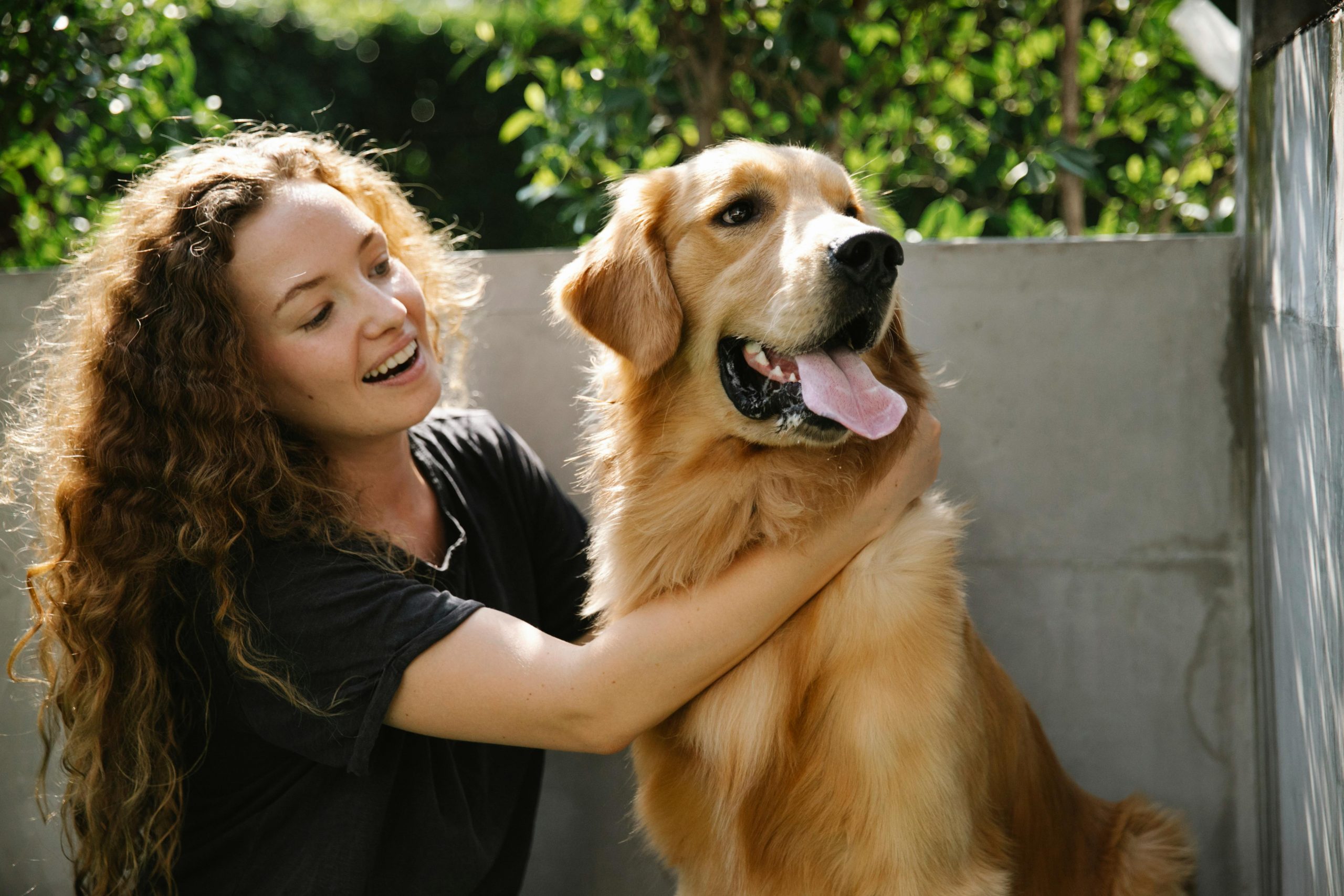
Dogs have long been recognized not just as pets, but as vital sources of comfort, support, and therapy to those in need. The concept of four-legged therapy isn’t new, but its importance has grown, showcasing the profound impact that these animals can have on human health and well-being. Certain dog breeds, with their innate sensitivity, intelligence, and gentle demeanor, excel in this role, offering emotional support, reducing stress levels, and bringing joy to various settings, including hospitals, schools, and homes. These breeds possess a unique combination of traits that make them ideally suited for therapeutic work, including an intuitive understanding of human emotions, an unflaggingly positive demeanor, and a comforting presence. As we explore the breeds considered the best at providing four-legged therapy, it’s clear that their contribution is beneficial and transformative, offering solace and happiness to those in need.
1. Labrador Retriever
Labrador Retrievers are among the most popular choices for therapy work due to their friendly nature, intelligence, and trainability. Labs have an innate ability to connect with people, making them excellent companions for individuals going through physical or emotional challenges. Their patience and gentle disposition allow them to interact positively with people of all ages, from children to the elderly. Labs are known to be empathetic, often sensing and responding to the emotional state of their human friends, making them perfect for therapeutic settings.
2. Golden Retriever
Golden Retrievers are synonymous with therapy work, thanks to their calm demeanor, intelligence, and eagerness to please. These qualities make them outstanding therapy dogs, capable of providing comfort and support to those in need. Goldens have a natural affinity for human interaction, making them well-suited for visits to hospitals, schools, and nursing homes. Their friendly and affectionate nature helps reduce anxiety and depression, offering a non-judgmental ear and a warm cuddle to those they meet.
3. Cavalier King Charles Spaniel
Cavalier King Charles Spaniels are known for their gentle and affectionate nature, making them ideal therapy dogs, especially in environments that require quiet and calm. Their small size allows them to be easily handled and to comfortably sit on a lap, providing close physical contact that can be soothing and therapeutic. Cavaliers are very adaptable and can work well in various therapeutic settings, offering comfort and joy with their sweet demeanor.
4. Poodle
Poodles are highly intelligent and trainable dogs, making them excellent candidates for therapy work. Their hypoallergenic coats make them suitable for individuals with allergies, broadening the environments in which they can provide support. Poodles are known for their keen sense of empathy and can often be found working as therapy dogs in schools, hospitals, and nursing homes, where they offer comfort, support, and relief from stress and anxiety.
5. Beagle
Beagles, with their friendly and curious nature, are great therapy dogs, particularly for children and the elderly. Their size and gentle demeanor make them approachable and easy to bond with. Beagles are known to be very affectionate and can bring a sense of calm and happiness to therapeutic environments. Their presence can help reduce feelings of loneliness and anxiety, making them valuable companions in various settings.
6. Boxer
Boxers may look imposing due to their size and strength, but they are known for their loving and patient nature, making them excellent therapy dogs. Their high energy levels and playful antics can bring smiles and laughter, serving as a great form of stress relief. Boxers are very loyal and form strong bonds with their human companions, offering emotional support and comfort to those in need.
7. Standard Schnauzer
Standard Schnauzers are intelligent, strong-willed dogs with a protective nature, making them great therapy dogs, especially for individuals requiring a sense of security. They are highly trainable and can be taught a wide range of tasks to assist their human companions. Their loyalty and affectionate nature allow them to provide comfort and emotional support, making them well-suited for therapeutic roles.
8. Corgi
Corgis, both Pembroke and Cardigan, are known for their cheerful disposition and friendly nature, making them excellent therapy dogs. Their compact size and engaging personality make them well-suited for interaction with people of all ages, providing comfort and joy. Corgis have a way of making people smile with their playful antics and affectionate behavior, offering emotional support and stress relief.
9. Bichon Frise
Bichon Frises are cheerful, loving dogs that thrive on human company, making them excellent therapy dogs. Their small size and hypoallergenic coat make them suitable for indoor environments and sensitive populations. Bichons are known for their ability to adapt to different situations and their eagerness to please, making them perfect for providing comfort and companionship in therapeutic settings.
In conclusion, these nine breeds stand out as exceptional providers of four-legged therapy, each with unique traits that make them ideally suited to bringing comfort, joy, and support to those in need. Their presence can be profoundly healing, showcasing the incredible bond between humans and dogs. Whether through a gentle nuzzle, a playful interaction, or simply their calming presence, these dogs demonstrate the power of unconditional love and the significant impact it can have on human well-being.






